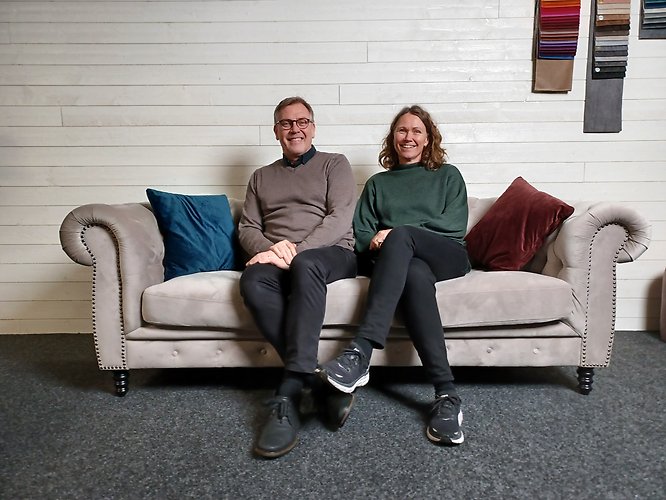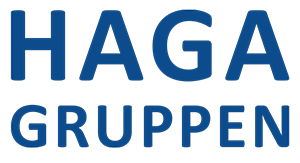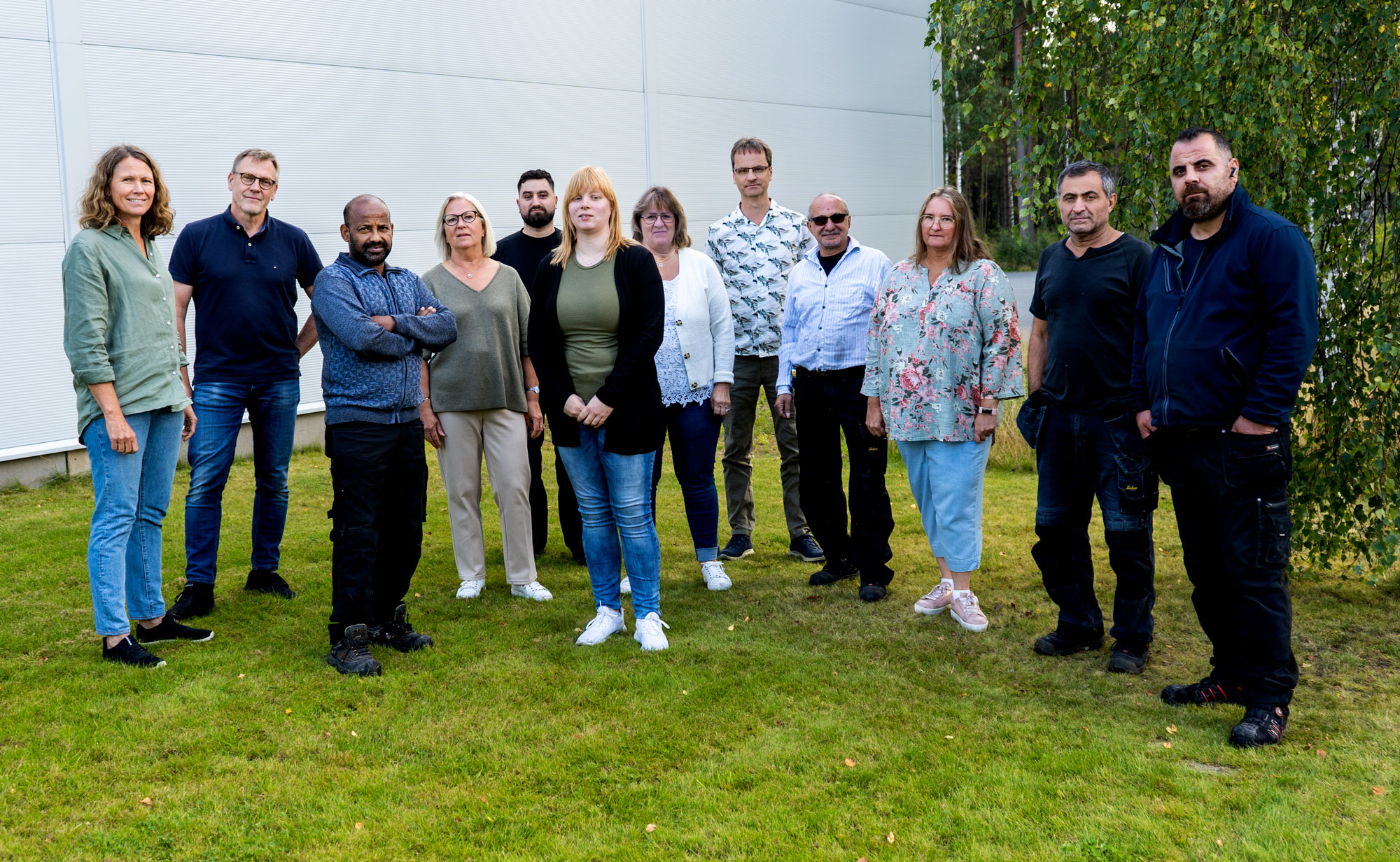SIRU 2.0 Case: Hagagruppen

SIRU 2.0 is financed by by Tillväxtverket with EU funding, and by Region Jönköpings län.
A wholesale company that wants to include all members of society!
A small actor who thinks big
A few miles outside of Jönköping, Sweden, you will find the small community of Bottnaryd and the wholesale company HagaGruppen. The company, like many other wholesale companies, does not have a strong profile among private individuals who want to buy furniture. However, it is often still their products that customers buy when shopping at the larger furniture stores - such as Mio, EM home or Svenska Hem. If you buy a recliner, Chesterfield or lift-chair model, there is a good chance that it is HagaGruppen that delivers!
At the same time, it is not HagaGruppen that manufactures. The company used to make furniture in Bottnaryd, but over time it turned out to be too expensive to make furniture in Sweden - and they started importing furniture from Asia instead. Today Haga Gruppen imports furniture from China and Thailand. With only 12 employees, the company feels small and local, but the supply chain extends far beyond Sweden.
Quick Facts - Haga Gruppen (The Haga Group)
- Founded: 1968
- Located in: Bottnaryd, Småland
- Family business? Yes
- Turnover (2022): SEK 112 million.
- Profit margin (2022): 13.5%
- Growth (turnover in 2022): 12%
- Employees: 12
- Sustainability certifications? Yes: OEKO-TEX, FSC, BSCI (certification of foreign suppliers)
- Case author: Duncan Levinsohn Opens in new window.
 Zoom image
Zoom imageHagaGruppen's CEO, Bernt-Arne Winberg and his wife Gerd
An actor who thinks differently
HagaGruppen's CEO, Bernt-Arne Winberg and his wife Gerd, started early with a different mindset. When other young adults did their basic military training, the couple chose to do their community service abroad, in village development projects in Zimbabwe. The experiences in southern Africa have shaped the couple - and their family - and since then Bernt-Arne has lived not only with his own passion for a just world but also with the family's strong expectation of a sustainable business. The journey towards sustainability has been – and is – challenging but the drive has always been the same. The company exists to make a difference, not primarily to generate large profits. As Bernt-Arne describes it, "it is actually better to give than to receive!".
A company that wants to reflect society's diversity
A principle that has followed the company for a long time is the idea that the composition of the employees should reflect the diversity that exists in society. HagaGruppen simply invests a little more energy to bring out the strengths of individuals that other companies do not recruit. Sometimes it is about disability, or sometimes about lack of education, or not having a Swedish background. Other companies may see an individual who has not learned to read or write as a problem but HagaGruppen has instead chosen to look to the individual's strengths when it comes to repairing damaged furniture - and today this person is one of the highest-paid within the company because of the value they add and the quality of their work. The same principle applies to one of the office workers who has a severe visual impairment and previously stayed at home having been deemed unable to work. The company has invested in aids to overcome the physical obstacle, and make use of the individual's drive and competence.
A small actor that influences the big ones
When you talk to Haga Gruppen's suppliers, you notice that the company was early in making demands on its suppliers regarding ecological and social sustainability. Bernt-Arne remembers how the big factory owners in Asia laughed when the small company from Småland wanted to make demands on the delivery that they produced in just one day's work. But he is also proud when he tells how, with time and persuasion, they slowly began to implement changes in order to work proactively towards an increasingly environmentally conscious Europe. Some suppliers had to be abandoned, admits Bernt-Arne, but the others today work with a focus on more sustainable production and certified manufacturing.Today it is sometimes the Swedish buyers who are lagging behind when it comes to demanding sustainable manufacturing!
In which areas is the company committed to sustainability and social innovation?
- Integration of underrepresented social groups in working life.
- Building Sustainability -1! Sponsorship of association life and sports, and own non-profit involvement.
- Building Sustainability - 2! Purchase of local products (honey, etc.) that promote both ecological sustainability and the area's small business owners.
- Cooperation regarding energy supply with other companies (solar panels) and heating (industrial symbiosis with carpentry factory).
- International development work through the investment of money and expertise in development projects.
How does the company address societal challenges in an innovative way?
- The company is 'principled' and the business is largely shaped by finding creative solutions in order to live up to these principles and ambitions.
- The company looks to the strengths of individuals instead of their limitations and (lack of) formal qualifications. They invest time in the individual in order to be able to take advantage of these strengths in the long term - while maintaining profitability.
- The company steers larger players towards sustainability 'from below' / from a position of weakness – rather than from a position of strength and formal power/influence.
What social benefit does the company create?
- Norms and operations of both suppliers and customers are becoming more sustainable.
- Individuals are not taken advantage of by other organizations and enter productive workforce.
- Absenteeism decreases in employees who were previously outside the labor market.
- Energy supply in the local community becomes more sustainable, and is run with renewable resources.
What makes the company particularly interesting as an example?
- HagaGruppen becomes particularly interesting when you compare the logic of the business with the logic of other companies. Many CEOs lock themselves into a mindset that they inherited or never questioned: "it's still the profit that must come first". HagaGruppen is a profitable company that allows other values to form the basis of the business. They have dared to challenge tradition!
- The company also shows the role that the 'entrepreneurial' plays in sustainability work. The text above may give the impression of an overly 'ideal' picture of the company's journey. But the real journey has been marked by some failed experiments and partners that did not live up to expectations. And as Bernt-Arne is quick to point out, we have not yet reached the end and there is still much to do!



